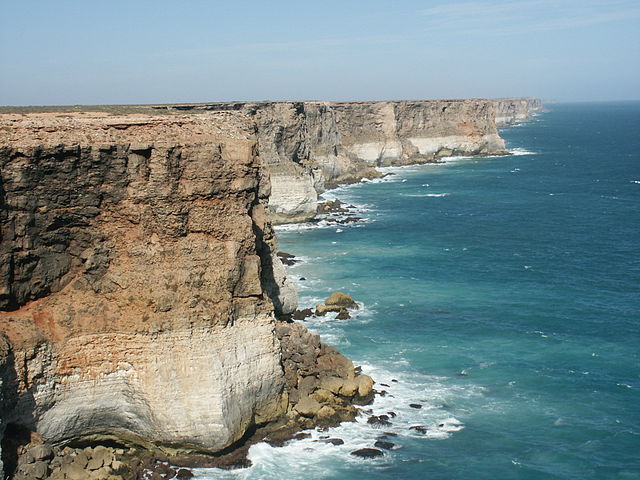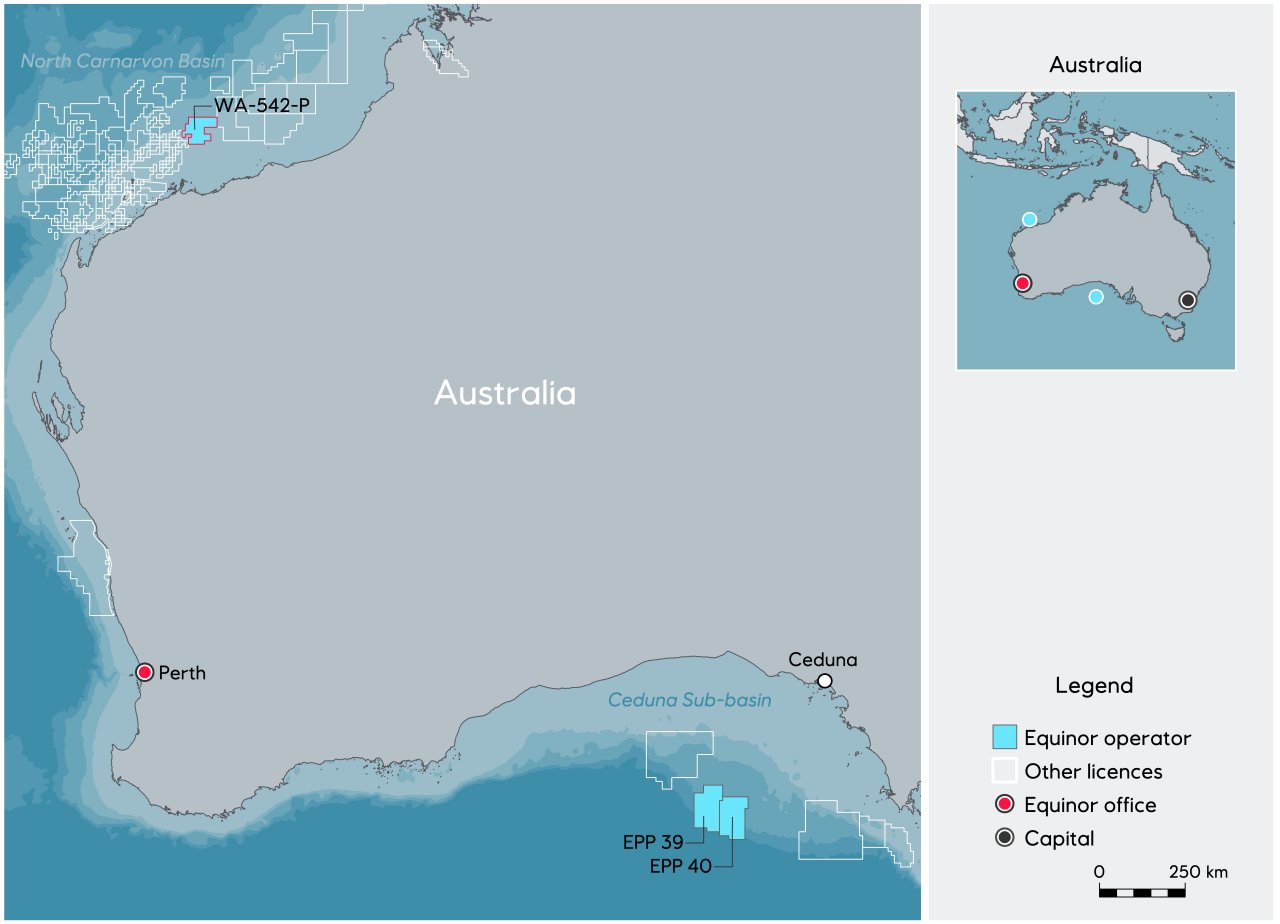- Sustainable Planet -
- 6mins -
- 37 views
Equinor scraps plans to drill for oil in the Great Australian Bight… but what’s next?
Norwegian energy giant Equinor’s planned oil exploration in the Great Australian Bight will not go ahead after they decided to end the $200 million project — but will another company take up the mantle?
Equinor scraps Bight oil exploration project
Environmentalists are delighted by Norwegian multinational energy giant Equinor’s announcement they are scrapping plans to explore for oil in the Great Australian Bight, but last month’s decision by the company to abandon the A$200 million plan surprised both its critics and backers, and Resources Minister Keith Pitt expressed disappointment at the decision.

Drilling in the bight has been consistently opposed since it was first proposed in 2011
Equinor’s decision to scrap its proposed drilling in the Great Australian Bight has come as a shock to supporters and critics alike. — reported ABC.
The announcement came just weeks after the Norwegian oil company was granted environmental approval by the national offshore petroleum regulator — a key milestone that would have allowed exploration drilling to begin within months.
The company has not commented on how much it spent to get to this point, but has insisted it is a purely commercial decision, and unrelated to widespread environmental opposition.
"It’s just too expensive … the cost for these activities is just too high to go ahead," Equinor’s Australian chief, Jone Stangeland, said. "The main procurement activities included the rig, the helicopters and also the supply base activities. We met with federal and state politicians yesterday. They were disappointed and we can understand why they are disappointed. At the same time, they also recognised that this is a commercial decision."
However, energy analysts are pointing to other factors which may have contributed to that decision — including climate change.
Drilling in the bight has been consistently opposed since it was proposed — not by Equinor, nor Chevron, but by BP way back in 2011.
Concerns were raised about a possible disaster, like the Gulf of Mexico oil spill in 2010. The blow out at the Deepwater Horizon drilling rig killed 11 people and spilled 4.2 million barrels of oil into the gulf — the worst offshore environmental disaster in US history.
Despite his company’s decision, Mr. Stangeland said Equinor had done good work and he remained optimistic about the likelihood of future exploration in the area.
"This could open up a new province, a new area for oil and gas in South Australia," he said.
Source: ABC.net.au

Was climate change a factor in Equinor’s decision?
Equinor is two-thirds owned by the Norwegian Government. Last year, it was widely reported that Norway’s sovereign wealth fund was given the green light to begin selling off oil and gas stocks worth $US5.9 billion.
Energy consultancy EnergyQuest said Europe was moving away from oil. "In our view, the decision is likely to have been driven by stronger carbon reduction targets of the European oil companies," chief executive officer Dr. Graeme Bethune told ABC.
Dr. Bethune said Equinor had announced earlier this month it was working towards a 50% cut in net carbon intensity by 2050.
He said fossil fuel companies were increasingly getting into renewable energy.
"For example, OMV sold out of Tui in NZ in the past quarter because it said it was shifting away from oil," he said.
"Repsol in December announced a US$5.3 billion write down, reflecting lower values it sees for oil and gas, and said it would redirect investment into renewables. It has set a net zero target by 2050, and BP has since followed. Repsol didn’t appear to single out oil, but the logical conclusion is oil would be at the top of the reject list because of its higher carbon intensity."
He said this was another example of European influence on investments around the world.
Could someone else take up the drilling plan?
In 2007, Equinor began strategic cooperation with state-owned giant China National Petroleum Corporation but Dr. Bethune would not speculate on whether China was more likely to show an interest in the bight.
"At this stage, particularly with a low oil price, I don’t think there’d be immediate interest from other companies," Dr. Bethune said.
"Anything that does get taken up is subject to NOPSEMA [National Offshore Petroleum Safety and Environmental Management Authority] but I think it’s a pity that a company of Equinor’s standing has pulled out."
The Australian Petroleum Production and Exploration Association (APPEA) said it was not yet clear if another company would take up the mantle.
"We know the oil and gas resources are there, but what we don’t know is the commercial viability of producing them," director Matthew Doman told ABC.
"There are other companies that retain interest in the Great Australian Bight, they are much less advanced with their plans than Equinor were, so this is clearly a setback … and we’ll have to wait and see what the longer-term plans of other companies might be."
He said there was clearly a "concerted campaign" against drilling activity in the Great Australian Bight.
"We accept there are people who oppose them, we accept that there’s a range of genuine questions and concerns … but I think the public discussion of it could have been more reasonable," he said.
Source: ABC.net.au

Federal Resources Minister Keith Pitt unimpressed by decision
Federal Resources Minister Keith Pitt is disappointed by the decision and is encouraging other proponents to fill the void.
"I know many will find Equinor’s decision not to proceed with this oil exploration project in the Great Australian Bight extremely disappointing, and it is particularly hard for South Australia," he told AAP.
"The Bight Basin remains one of Australia’s frontier basins and any proposals for new oil and gas fields in this area will be assessed fairly and independently."
The Australian Petroleum Production and Exploration Association is also disappointed, saying the project could have shored-up local energy supplies and eased Australia’s reliance on imported oil.
Australia’s independent regulator approved the oil drilling in December.
An earlier study found oil exploration in the Great Australian Bight could create 2000 jobs and generate more than $7 billion in annual tax revenues.
Greenpeace and others have welcomed the withdrawal as "a win for the environment".
"This is an incredible win for people power and nature after years of relentless campaigning by coastal communities, indigenous traditional owners, surfers, the seafood industry, tourism operators and other local businesses," chief executive David Ritter told AAP.
The Environmental Defenders Office has been representing the Wilderness Society in a bid to overturn Equinor’s environmental approvals.
The EDO has hailed the legal action as a factor in Equinor’s decision, saying the company would have had to go back to the drawing board if the move was successful.
The case is due to appear in the Federal Court next week but may no longer be necessary.
BP, Chevron and Karoon Gas have all withdrawn from the Bight but Santos, Murphy Oil and Bight Petroleum still have plans to drill there.
"The only way to protect coastal communities and the Great Australian Bight’s unique marine life is to rule out drilling permanently," Mr. Ritter said.
"The Australian government should now impose a permanent moratorium on oil drilling in this precious marine wonderland."

